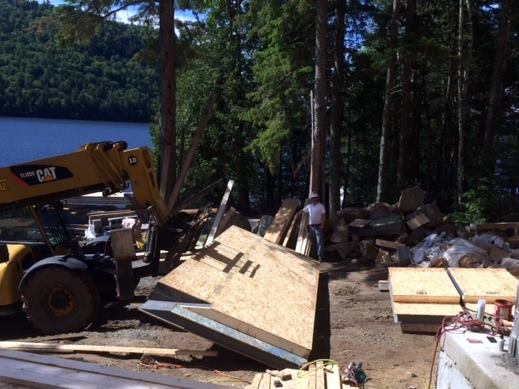 Structural Insulated Panels (SIPs) make up one of the most sustainable, energy-efficient construction methods in the residential and light commercial building industry today. Essentially, these are panels that sandwich a hard skin on either side of a core insulating layer. The rigid insulation blankets the entire structure in a well-sealed envelope, a critical factor for comfort and reduced energy use for heating and cooling.
Structural Insulated Panels (SIPs) make up one of the most sustainable, energy-efficient construction methods in the residential and light commercial building industry today. Essentially, these are panels that sandwich a hard skin on either side of a core insulating layer. The rigid insulation blankets the entire structure in a well-sealed envelope, a critical factor for comfort and reduced energy use for heating and cooling.
The Timberline Panel Company in Bennington is one of several Vermont companies that manufacture these panels for projects throughout the Northeast and beyond. Generally, using SIPs reduces construction time and on-site waste since exterior panels up to 8’ x 24’ can be delivered with doors and windows already custom cut to fit. The EPS insulation is ozone friendly, with no off-gassing or formaldehyde, and it is manufactured without the use of CFCs or HCFCs. Owners report their finished buildings reduce energy bills 40-50% and air leakage up to 90% compared to traditional construction, resulting in lower CO2 emissions.
Because these buildings are so tight, they can use smaller heating and cooling systems than conventional ones of the same size. The tightness also means proper ventilation of these structures is essential to assure healthy air quality.
The idea of using SIPs for building design first surfaced in the 1930s, but new materials and techniques are putting a spotlight on them as an important tool for addressing climate change.
We’re seeing a growing acceptance for SIPs in the building industry,” Timberline Owner Tom Harrison explains. “I think part of our job is to eliminate any stumbling blocks or worries the trades may have when using SIPs. In the long run, we believe they can have a big impact for carbon reduction.
